All Stories
-
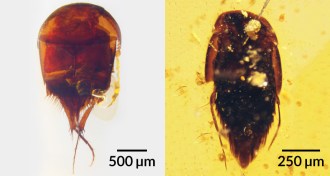 Animals
AnimalsBeetles have been mooching off insect colonies for millions of years
The behavior, called social parasitism, has been going on for about 100 million years.
-
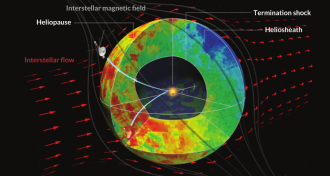 Astronomy
AstronomyNo long, twisted tail trails the solar system
The bubble that envelops the planets and other material in the solar system does not have a tail, new observations show.
-
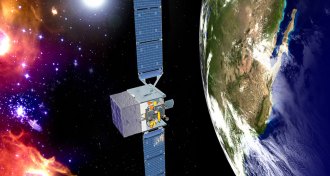 Physics
PhysicsGamma-ray evidence for dark matter weakens
Excess gamma rays are still unexplained, but they might not come from dark matter.
-
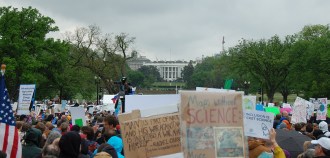 Science & Society
Science & SocietyWe went to the March for Science in D.C. Here’s what happened
Science News staff members reported live updates from the March for Science in Washington, D.C., on April 22.
-
 Science & Society
Science & SocietyWatch the March for Science in Washington, D.C.
Watch the live stream of the March for Science in Washington, D.C. on April 22.
By Science News -
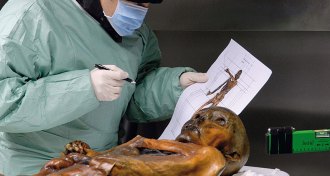 Anthropology
AnthropologyÖtzi the Iceman froze to death
Copper Age Iceman froze to death, with shoulder and head damage.
By Bruce Bower -
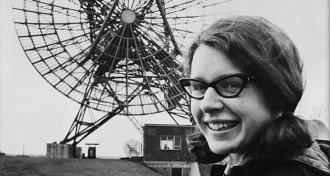 Science & Society
Science & SocietyTop 10 science anniversaries of 2017
2017 offers an abundance of scientific anniversaries to celebrate, from pulsars and pulsar planets to Einstein’s laser, Einstein’s cosmos and the laws of robotics.
-
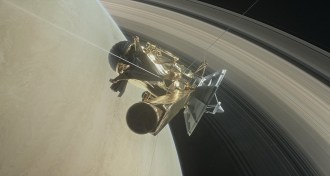 Planetary Science
Planetary ScienceIn ‘grand finale,’ Cassini spacecraft sets off on collision course with Saturn
The Cassini spacecraft will plunge into Saturn’s atmosphere and disintegrate on Sept. 15, but is slated to do some solid science before its demise.
-
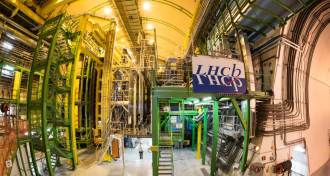 Particle Physics
Particle PhysicsCollider data hint at unexpected new subatomic particles
A set of particle decay measurements could be evidence for new physics.
-
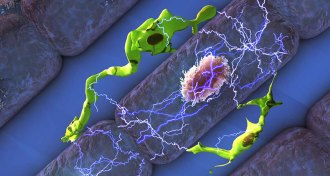 Life
LifeImmune cells play surprising role in steady heartbeat
Immune system cells called macrophages help heart cells rhythmically contract, maintaining the beat of mice’s hearts.
-
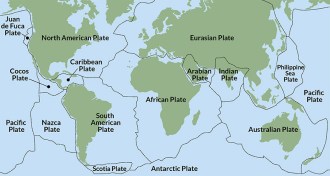 Earth
Earth50 years ago, continental drift began to gain acceptance
Half a century later, plate tectonics is well-established but still an active field of research.
-
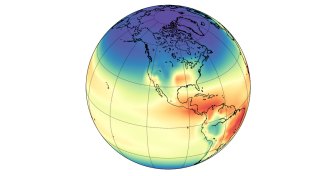 Climate
ClimatePlot twist in methane mystery blames chemistry, not emissions, for recent rise
The recent rise in atmospheric methane concentrations may have been caused by changes in atmospheric chemistry, not increased emissions from human activities, two new studies suggest.